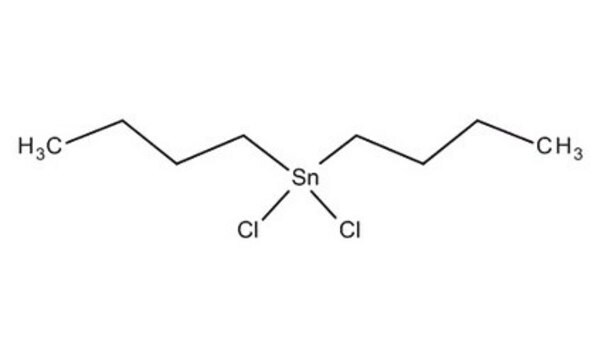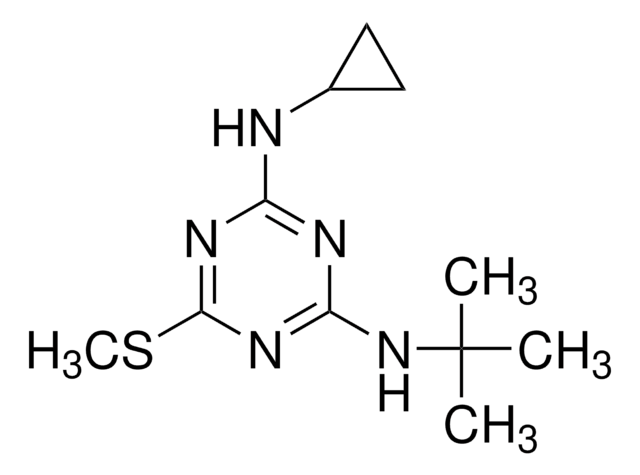205494
Dibutyltin dichloride
96%
Synonym(s):
Dibutyldichlorotin
About This Item
Recommended Products
Quality Level
Assay
96%
form
solid
bp
135 °C/10 mmHg (lit.)
mp
37-40 °C (lit.)
SMILES string
CCCC[Sn](Cl)(Cl)CCCC
InChI
1S/2C4H9.2ClH.Sn/c2*1-3-4-2;;;/h2*1,3-4H2,2H3;2*1H;/q;;;;+2/p-2
InChI key
RJGHQTVXGKYATR-UHFFFAOYSA-L
Looking for similar products? Visit Product Comparison Guide
Application
- Effects of dibutyltin compounds on PPARγ/RXRα activity: Studies the impact of various dibutyltin compounds, including dibutyltin dichloride, on adipogenesis and inflammation in mammalian cells, emphasizing their effects on the PPARγ/RXRα pathway (Milton et al., 2017).
Signal Word
Danger
Hazard Statements
Precautionary Statements
Hazard Classifications
Acute Tox. 2 Inhalation - Acute Tox. 3 Oral - Acute Tox. 4 Dermal - Aquatic Acute 1 - Aquatic Chronic 1 - Eye Dam. 1 - Muta. 2 - Repr. 1B - Skin Corr. 1B - Skin Sens. 1 - STOT RE 1 Oral - STOT SE 1 Oral
Target Organs
thymus
Storage Class Code
6.1A - Combustible acute toxic Cat. 1 and 2 / very toxic hazardous materials
WGK
WGK 3
Flash Point(F)
235.4 °F - closed cup
Flash Point(C)
113 °C - closed cup
Personal Protective Equipment
Choose from one of the most recent versions:
Already Own This Product?
Find documentation for the products that you have recently purchased in the Document Library.
Customers Also Viewed
Our team of scientists has experience in all areas of research including Life Science, Material Science, Chemical Synthesis, Chromatography, Analytical and many others.
Contact Technical Service













